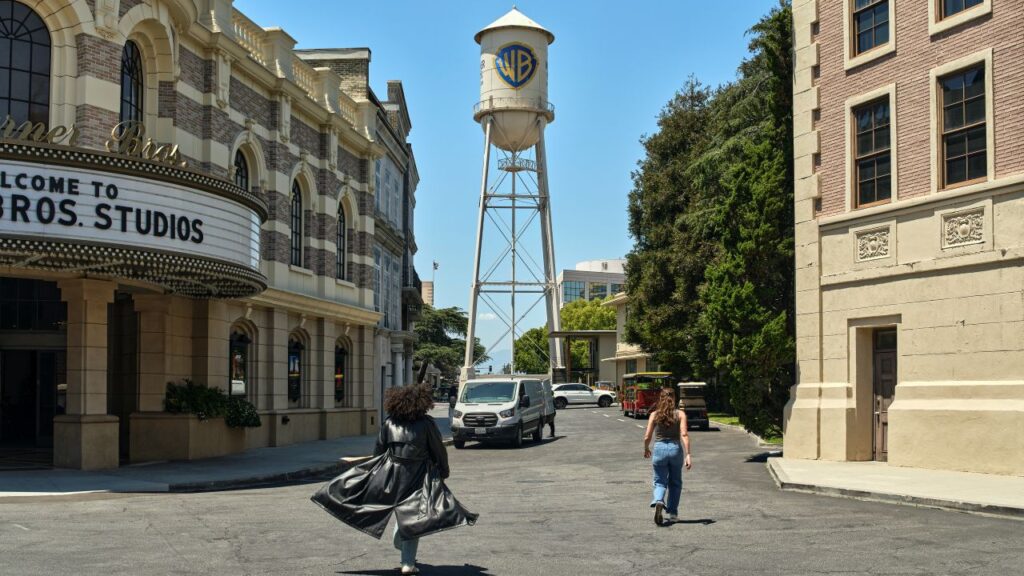Lennar is building new Clovis homes at Ashlan and Highland avenues. The city is doubling developer fees for water infrastructure. (GV Wire/David Taub)

- The city of Clovis is doubling developer fees to connect to water.
- The fees, the industry said, will go from $6,000 to $12,000 per home.
- The building industry is asking the city for more time to negotiate a deal that protects future homebuyers.
Share
|
Getting your Trinity Audio player ready...
|
The city of Clovis doubled the amount developers will pay for water fees — with the hikes likely passed on to new homebuyers.
The city council held a long, and somewhat complicated debate on Aug. 5, at which the homebuilding industry asked the city to continue a pause on implementing the increase.
The building industry said a doubling of water fees is too much.
“These are huge fee increases. It makes us uncompetitive. My builders are not swimming in cash,” Building Industry of America local chapter president Darren Rose told the Clovis City Council during the 90-minute discussion.
Ultimately, the city council let the fees — technically called the construction cost index — stand. The city council approved the 105% water fee increase as part of a package on June 10, taking effect Aug. 12.
The council did instruct its staff to negotiate with builders for another 120 days on best practices. BIA representatives want the extra time to further study the plan.
Related Story: Clovis Voters Will Decide Whether to Raise City Sales Tax
Builders raised three main issues about how the city is calculating its charges — how many homes a new water treatment facility would cover, what finance rate to use, and pre-payment policy.
The BIA said water fees as they stand, would go from about $6,000 to more than $12,000. These would likely be passed on to future homebuyers.
The city said increases are needed because the previous fee structure would not be sufficient to pay for future water projects. Most of the fee money goes toward paying off the bond debt for the current treatment plant.
“We kicked the can down the road for a long time. Staff is recommended not to do it again,” City Manager John Holt said.
(Disclosure: GV Wire publisher Darius Assemi, who is president/CEO of Granville Homes, is a BIA board member and spoke at the Clovis City Council meeting.)
A Deep Dive Into Fee Calculation
The council discussion dove deep into how the city calculated charges, if they were fair, and how to solve a long-standing problem on how much they should be.
Mayor Lynne Ashbeck appeared exasperated several times managing the discussion, which proved difficult to follow for the average citizen, and councilmembers alike. Discussions started in 2022.
“It’s just beyond frustrating that we’re still hashing this out … two and a half years later since we started,” she said.
As city staff and builders debated the finer components of financing, Ashbeck chimed in, “We could be here all night … this is not the place to have the conversation.”
That didn’t stop the discussion, as the council heard from public utilities staff and the building industry. The council asked several questions trying to come up with a fix.
When the talking finally stopped, Ashbeck summed up the evening.
“This was super ugly to watch, but we’re really trying to find a solution,” Ashbeck said.
Related Story: Clovis Unified Bond Measure Would Modernize 67-Year-Old School, Complete ...
Disagreement Over Formulas
Developers disagree with the way city staff is calculating fees, especially for building water facilities for a potential new 57,500 homes.
“The building industry doesn’t believe that paying for the entire finance cost upfront for something that’s usually built in phases is necessary at this point,” Rose told GV Wire.
Specifically, the industry objected to the 80/20 formula of how the city will spread out new fees. The city estimated that 80% of the land area in the general plan is developed, equating to 57,500 homes or units. Thus, fewer homes will share the infrastructure costs, meaning higher charges per home unit.
The industry said all potential units should pay equally, lowering the fees per home.
City Attorney Scott Cross said the 80% buildout is fair and defensible.
Developers also said the city is charging for more capacity than needed. During its presentation, city staff used charts and calculations to justify its position, based on estimated water use per household and the planned water supply.
Staff said the city doesn’t have cash on hand to build a new facility and would need to finance the project through a bond. Developer fees now are paying down the bond for the current water treatment plant.
The city uses 5% interest, a rate that staff said is backed by research and is “defensible and prudent.”
BIA members, including Assemi, challenged how much the finance charges should be, arguing it is lower than 5%.
“You’re asking us to take a point-in-time snapshot on a 30-year projected estimated cost. And I don’t think that’s a reasonable request,” Holt said.

Phase in Water Infrastructure, Lower Finance Costs: BIA Board Member
Civil engineer Gregory Bardini — also a BIA board member — questioned why the financing charges for a $366 million project would be $313 million.
Bardini said Tesoro Viejo, a planned community in Madera County, phased in its water treatment facility.
“Can we phase those improvements over time and minimize the need for financing?” Bardini asked. “We cannot, as a building community, absorb … $313 million of finance charges that you may or may not pay. Based on my quick analysis, I think that number is overstated by about two-thirds.”
That made sense to Councilmember Diane Pearce.
“Why would we borrow $100 million at the outset and pay interest when we only need $30 million to start with?” she said.
Staff responded saying that plan would work if Clovis had sufficient cash on hand.
One suggestion from Councilmember Vong Mouanoutoua would be to refund or rebate upfront costs if there are overpayments.
Walter Diamond with Lennar rejected that idea.
“That makes me very nervous. And I think I’d have a hard time explaining that to my corporate office,” Diamond told the council.
Bardini stuck up for future homebuyers.
“What are you going to do, refund that homeowner that bought that house?” Bardini asked.
Fresno Traffic Signal About to Light Up
Fresno City Councilmember Mike Karbassi announced at long last, the traffic signal at Audubon and Del Mar avenues will activate on Wednesday. The location is near the highly-debated trail entrance for the River West project.
“Today marks a significant advancement in our commitment to enhancing public safety, especially in the Woodward Park neighborhood,” Karbassi said in a news release. “This new traffic signal will not only improve the safety of our streets but also bring us closer to realizing the full potential of the River West Project.”
RELATED TOPICS:
Categories

The Birth Rate Is Plunging. Why Some Say That’s a Good Thing



















